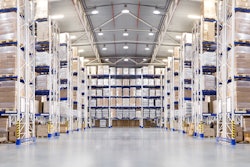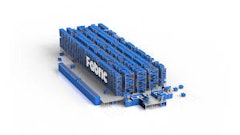
A new report by Accenture with Frontier Economics found that last mile delivery ecosystems could reduce harmful emissions and traffic congestion within cities by using micro fulfillment centers. Micro fulfillment centers allow products to be stored closer to consumers, enhancing supply chain processes. According to the study, “The Sustainable Last Mile: Faster. Greener. Cheaper.,” increasing the use of micro fulfillment centers to enable same-day or next-day deliveries allows retailers and logistics operations a series of operational benefits while creating a significant positive environmental impact.
“The carbon footprint of the last mile has long been an environmental and societal challenge,” said André Pharand, a managing director at Accenture who leads the company’s postal & parcel practice. “It’s time to take action and make the last mile supply chain more efficient, less expensive, and more sustainable. Organizations with innovative local fulfilment strategies and that lead in digital adoption and sustainable business practices will become tomorrow’s industry leaders.”
According to BusinessWire:
- MFCs include in-store click and collect points, automated locker storage facilities, and stand-alone micro-warehouse facilities.
- The report, “The Sustainable Last Mile: Faster. Greener. Cheaper.,” found that using local micro-fulfilment centers (MFCs) across Chicago, London and Sydney to fulfill just half of the e-commerce orders in those cities could significantly reduce traffic volume and harmful air emissions — and that last-mile supply chains using MFCs could lower delivery vehicle-related emissions 16%-26% by 2025.
- Of the three cities included in the study, London would likely see the largest delivery traffic reduction from the use of MFCs — 13%, equating to about 320 million fewer miles (520 million fewer kilometers) traveled by delivery vehicles.

















